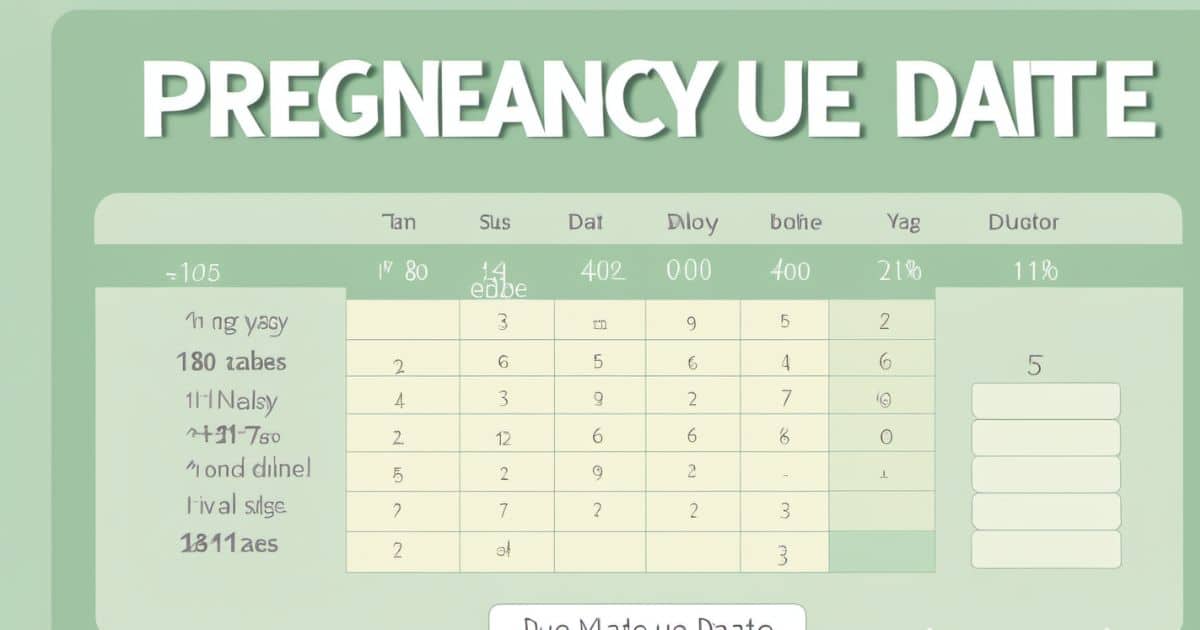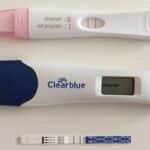“Pregnancy Due Date Calculator” is a vital tool for expectant mothers and healthcare professionals to accurately estimate the date when a baby is due. By inputting the first day of the last menstrual period and factoring in the average pregnancy duration, this calculator provides a reliable projection of the anticipated delivery date. Knowing the due date is crucial for monitoring fetal development, scheduling prenatal appointments, and preparing for the exciting arrival of the newborn.
BabyCenter’s Due Date Calculator
Plan your journey to parenthood effortlessly with our Pregnancy Calculator! Simply input the date of your last period, the conception date (if known), the timing of your IVF transfer, or your first ultrasound date, and let our Due Date Calculator handle the rest!
How is my due date calculated?

Determining your due date involves a few intriguing factors. If you’re privy to the exact day of conception, you can simply calculate 38 weeks from that pivotal moment to pinpoint your due date. (For context, human gestation typically spans around 38 weeks.)
Yet, the reality is that very few expectant mothers possess the luxury of pinpointing the precise moment of conception. Even if your amorous encounter occurred only once during your fertile window, conception doesn’t occur unless it coincides with ovulation.
Here’s where it gets fascinating: Sperm, resilient as they are, can linger within your fallopian tubes for up to five days. This means that conception might transpire up to five days post-intercourse when your egg is released (ovulation) and merges with a patiently waiting sperm. This is the crux of conception.
Now, considering the intricacies of conception, how does one go about establishing a due date without the knowledge of the exact day of conception?
First day of your last period
The standard approach to determine your expected delivery date during pregnancy involves calculating 40 weeks from the onset of your last menstrual period (LMP). This is a widely adopted method by healthcare providers and can be conveniently selected from our tool’s menu above.
Assuming an average menstrual cycle length of 28 days, it’s important to note that your conception likely occurred approximately two weeks after the initiation of your last period. This is the reason why pregnancies are commonly considered to span 40 weeks rather than 38.
Read this Post: Eat Medium-Well Steak While Pregnant
It’s worth mentioning that this calculation doesn’t account for the actual length of your menstrual cycle or the specific timing of conception. However, as a general guideline, women usually ovulate about two weeks after the commencement of their menstrual cycle. Additionally, women tend to have a clearer recollection of when their last period began compared to the day of ovulation.
For those who are aware of the first day of their last menstrual period, our Due Date Calculator is a valuable tool for estimating the anticipated due date. Simply input the relevant information to receive a prediction for your expected due date.
Conception date
If you happen to have precise knowledge of your conception date, such as through the use of an ovulation predictor kit or by tracking ovulation symptoms, you can determine your expected pregnancy due date based on that specific date. Simply select the corresponding calculation method from the dropdown menu above and input the relevant date.
It’s important to note that conception doesn’t necessarily occur on the same day as sexual intercourse.
IVF transfer date
For those who conceived through In Vitro Fertilization (IVF), you can calculate your due date by referencing your IVF transfer date. If you had a Day 5 embryo transfer, add 261 days to your transfer date. If it was a Day 3 embryo transfer, add 263 days. Alternatively, you can choose the “IVF” option from the Due Date Calculator method choices provided.
Ultrasound scan

If you’re looking to explore an alternative approach to determine your due date, especially if you’ve undergone an early, first-trimester ultrasound, this scan at your healthcare provider’s office can be a valuable tool for pinpointing the anticipated arrival of your baby.
The precision of early ultrasounds can surpass traditional methods such as relying on your last menstrual period, conception date, or other techniques. Simply select “ultrasound” from the Due Date Calculator dropdown menu on our platform.
It’s essential to note that not every pregnant individual will undergo an ultrasound during their initial prenatal visit or another early examination. Some healthcare professionals conduct ultrasounds for all expectant patients, while others reserve them for situations where conventional methods or a physical examination fail to determine the due date.
Additionally, early ultrasounds may be recommended if there are specific risk factors involved, such as a history of pregnancy complications, previous miscarriages or losses, irregular menstrual cycles, fertility challenges, various chronic health conditions, or if the expectant individual is 35 years or older.
Can my due date change?
Your anticipated delivery date could undergo adjustments based on a first-trimester ultrasound scan, especially if your baby’s size deviates significantly from the expected range for its gestational age. This recalibration becomes more probable if you have an irregular menstrual cycle, making it challenging to accurately determine the conception date. During the ultrasound examination, your healthcare provider will assess your baby’s measurements to gauge its developmental stage and then furnish you with a revised due date.
What if I already know my due date?
In the event that you are already aware of your due date, this pregnancy calculator offers a comprehensive overview of your pregnancy timeline. It not only highlights key milestones but also provides insights into the timing of essential prenatal tests and visits. Additionally, you can discover your baby’s zodiac sign and birthstone, along with interesting trivia about notable individuals who share your due date.
How likely am I to give birth on my due date?

Certainly, determining the exact due date of a pregnancy can be a bit challenging, whether you rely on our pregnancy calculator, guidance from your healthcare provider, or midwife. Statistically speaking, only about 1 in 20 women actually deliver on their predicted due date. The reality is, the window for labor is quite broad, extending approximately two weeks before or after the anticipated due date.
For a more comprehensive understanding of how pregnancy weeks, months, and trimesters are calculated, refer to our informative pregnancy timing chart.
How soon can I take a pregnancy test?
Now, if you find yourself in the midst of pregnancy discussions, you might also be curious about when it’s appropriate to take a pregnancy test. To ensure the utmost accuracy, it’s advisable to wait a few days post your missed period before attempting a pregnancy test.
At-home urine tests gauge the presence of hCG (human chorionic gonadotropin) in your body. Attempting a pregnancy test too early, before missing your period, might not yield the most reliable results, despite the claims of some tests. So, patience is key for the most accurate readings.

Hey there! I have 5 years of experienced Familynexa Bringing families closer together through shared experiences, advice, and memories. Building connections that last lifetimes.












